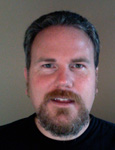When asked what kind of computational tools historians and other humanists need, the best metaphor that I could come up with drew on Jim Clifford's ideas of travel and translation. It would be easy to make tools that quantified how many miles you traveled on your vacation, how many feet you were standing from the sculpture when you took the picture, how you rated your meal in Venice on a scale of 1 to 10 ... but it would completely miss the point. Instead you want ways to help you translate, to capture and document your experiences, to cue your memories, to support your storytelling, to deepen your interpretations and understanding.
In this blog, I've assumed that most of my audience would be historians and other humanists who are interested in exploring digital and computational techniques at a number of levels. The LIKES meeting reminded me that the bridge goes both ways, that computer scientists, applied mathematicians, science educators and others are also interested in ways that their skills and tools might be applied in new domains. So, for those of you coming in the other direction: welcome! Here are a few things you might be interested to know:
- Historians who are interested in quantification already know about and use spreadsheets, databases, mathematical models, computer programs and visualization. Historians who aren't interested in quantification won't be happy with a definition of 'qualitative' that consists of "leaving the numerical scale off of the axes of your graph."
- The best way to promote computation amongst humanists is to emphasize social and textual applications of computing, especially ones that augment the power of individuals to do research that draws on collections of cultural / heritage materials that are distributed across many different repositories.
- Verbs, not nouns. John Unsworth's paper on scholarly primitives is a good place to start.
- There are a number of good books that take a humanistic perspective while still being sensitive to the potential of instrumental thinking. I particularly like Philip Agre's Computation and Human Experience and Lucy Suchman's Human-Machine Reconfigurations.
